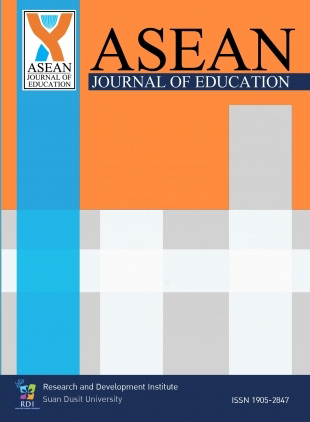The Effect of Constructive Patriotism on Constructive Thinking Ability in Historical Learning at Students of Senior High School Muhammadiyah Karanganyar Indonesia
Keywords:
Constructive patriotism, Constructive thinking, Historical learning.Abstract
This study analyzed the effect of constructive patriotism on constructive thinking ability in historical learning. The study used a quantitative research method with a descriptive correlational approach. To find out the effect of predictors on the dependent variable, the measurement was made by simple linear regression tests. The research sample consisted of 106 students at ages 16 to 18 years old which were taken by a purposive sampling technique in Senior High School Muhammadiyah 1 Karanganyar. The result show that there is a partial effect of constructive patriotism on constructive thinking ability with 18.88 percentage of correlation. It can be said that the constructive attitude of patriotism went hand in hand with the constructive thinking ability. The conclusion states that the attitude of constructive patriotism and constructive thinking ability are competencies that need to be taught to students by historical learning.
References
Brown, G . (2006). Who do we want to be? The future of Britishness. Speech given to the Fabian Society, 16 January.
Carreter o , M. (2011). Constructing patriotism: Teaching history a nd memories in global worlds. North Carolina: IAP.
Epstein, S. (1998). Constructive thinking: The key to emotional intelligence. California: Greenwood Publishing Group.
Flett, G. L., Russo, F. A., & Hewitt, P. L. (1994). Dimensions of perfectionism and constructive thinking as a coping response. Journal of Rational-Emotive and CognitiveBehavior Therapy, 12(3), 163-179.
Haynes, B. T., & Haynes, B. T. (Eds.). (2009). Patriotism and Citizenship Education. New Jersey: Wiley-Blackwell.
Merry, M. S. (2009). Patriotism, history and the legitimate aims of American education. Educational Philosophy and Theory, 41(4), 378-398.
Nathanson, S. (1993). Patriotism, morality, and peace. Maryland: Rowman & Littlefield. Osler, A. (2009). Patriotism, multiculturalism and belonging: politica l discourse and the teaching of history. Educational Review, 61(1), 85-100.
Rokhmad, A. (2012). Radikalisme Islam dan Upaya Deradika l isasi Paham Radikal. Walisongo: Jurnal Penelitian Sosial Keagamaan, 20(1), 79-114.
Sadikin, S., & Affandi, I. (2019). Muhammadiyah movement from the civic education perspective. Jurnal Penelitian Pendidikan, 19(1), 106-115.
Schatz, R. T., Staub, E., & Lavine, H. (1999). On the varieties of natio n al attachment: Blind versus constructive patriotism. Political Psychology, 20(1), 151-174.
Schatz, R. T. (2018). A Review and Integration of Research on Blind an d Constructive Patriotism. Handbook of Patriotism, 1-19.
Staub, E. (1997). Blind versus constructive patriotism: Moving from embeddedness in the group to critical loyalty and action. Chicago: Nelson – Hall Publisher.
Straw, J. (2007). We need a British story. The Sunday Times. Retrieved July 20, 2019, from http://www.timesonline.co.uk/tol/comment/columnists/guest_contributors /article1720349.ece
Williams , R. L., Foster, L. N., & Krohn, K. R. (2008). Relationship of patriotism measures to critical thinking and emph a sis on civil liberties versus national security. Analyses of Social Issues and Public Policy, 8(1), 139-156.
Downloads
Published
How to Cite
Issue
Section
License

This work is licensed under a Creative Commons Attribution-NonCommercial-NoDerivatives 4.0 International License.
1 All articles will undergo a formal peer-review. A panel of experts from within or without the university will examine the article; approval from a minimum of two experts is required for publication. Revisions posed by the experts must be completed by the research prior to publication.
2 Once published in the ASEAN Journal of Education, the article becomes intellectual property of Suan Dusit University. Duplication, in full or part, requires permission from Suan Dusit University.
3 Excluding errors incurred during printing, author(s) are responsible for the content of their articles.






